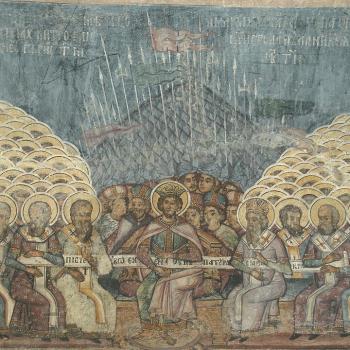There are probably good reasons why the New York Times keeps on publishing, but I can’t think of any.
A case in point. This week, the paper ran an op-ed by one David Mason under the title “I’m a Mormon, Not a Christian.” The piece makes a point that is controversial but not necessarily eccentric, namely that at least some Mormons feel no need to claim Christian status, and are happy to see themselves as members of a different faith altogether. The vast majority of Mormon believers would disagree, but that’s Mason’s point of view. He boasts of being a happy heretic.
What is bizarre is the sheer ignorance of the piece, a genuinely nasty example of anti-Christian venom. For instance, proclaims Mason, “Being a Christian so often involves such boorish and mean-spirited behavior that I marvel that any of my Mormon colleagues are so eager to join the fold.” Christians, it seems, are by nature bullies and persecutors. And you think the Times would print such an ill-tempered shriek against any other faith?
My favorite example, though, involves Mason’s attempt to explain theological differences: “For the curious, the dispute can be reduced to Jesus. Mormons assert that because they believe Jesus is divine, they are Christians by default. Christians respond that because Mormons don’t believe — in accordance with the Nicene Creed promulgated in the fourth century — that Jesus is also the Father and the Holy Spirit, the Jesus that Mormons have in mind is someone else altogether. The Mormon reaction is incredulity. The Christian retort is exasperation.”
My own response is “Huh?” I would be truly sad if anyone who had ever taken a Western Civ. course would perpetrate such a ludicrous distortion of the Nicene debates, and yet here we have it printed in the New York Times, our very own American Pravda, without a copy-editor taking a moment to say “Hey, hold on – that’s totally wrong! Shouldn’t someone ask Mason to rewrite this?” His declarations would after all be quite accurate if we inserted the word “not” a few times at strategic places.
What does the Times think it’s doing?












